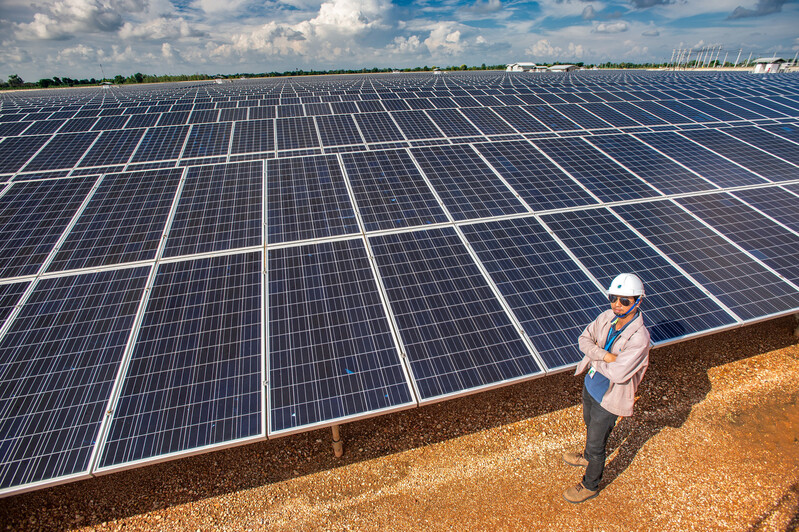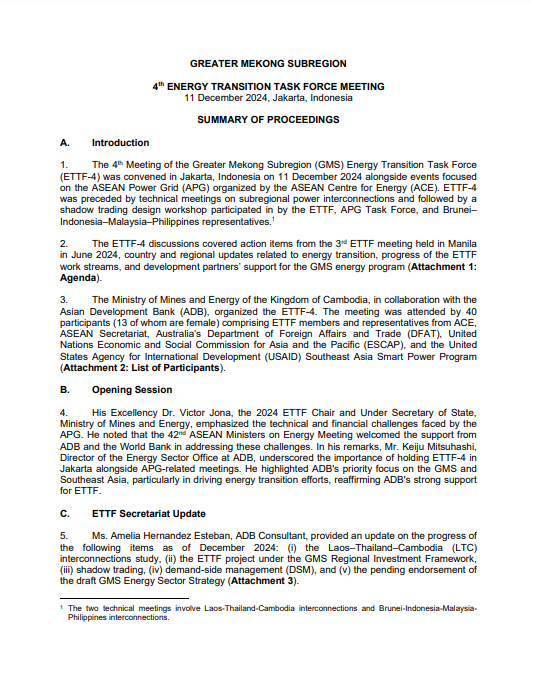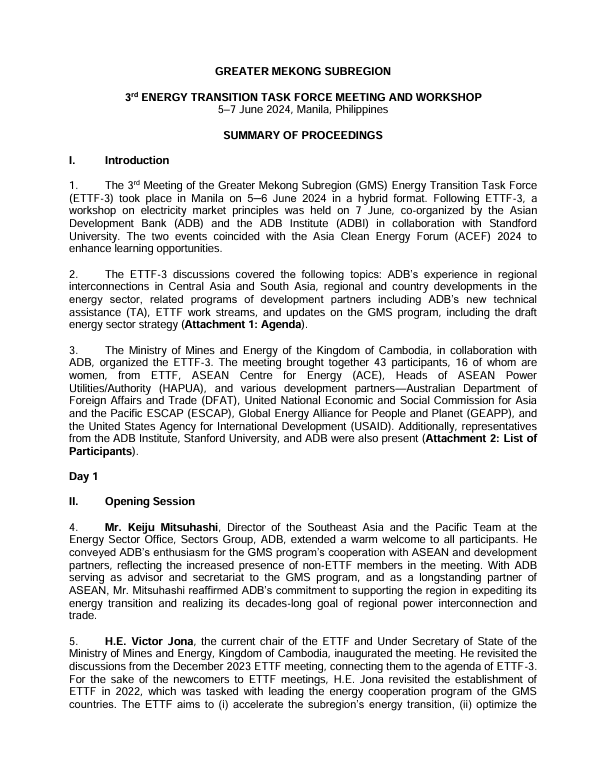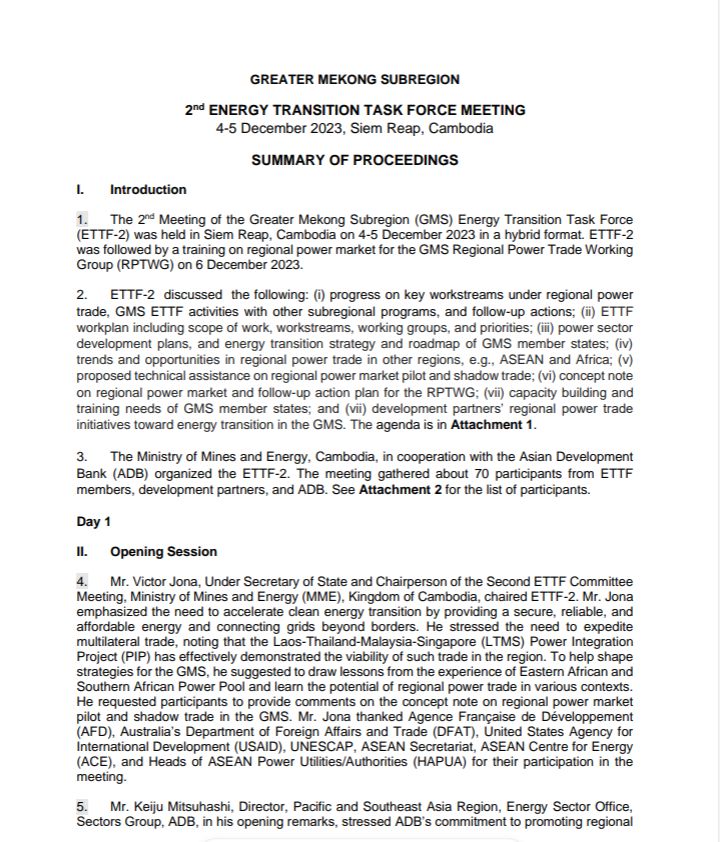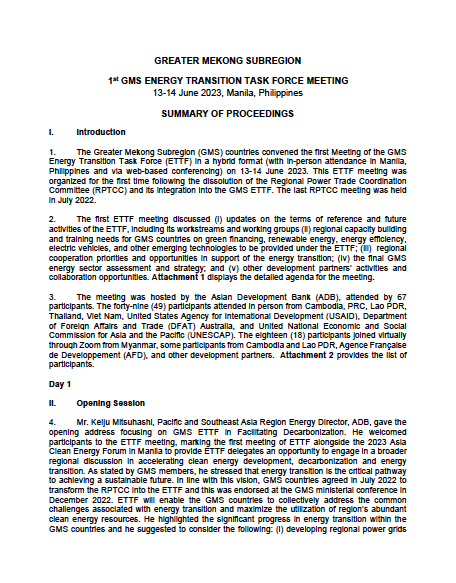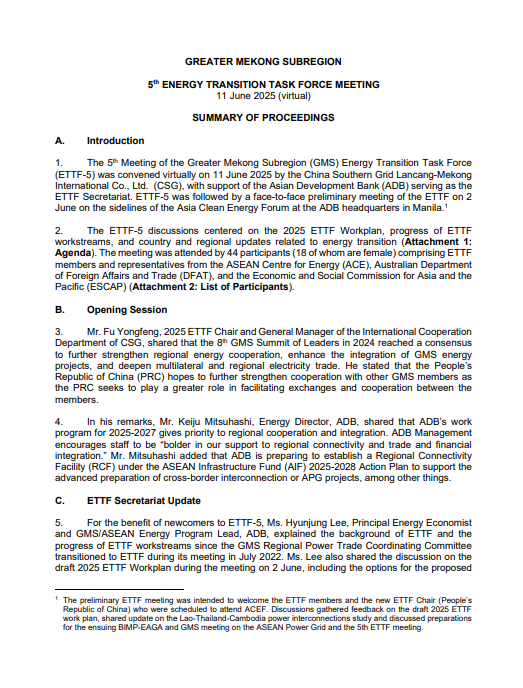
5th Energy Transition Task Force Meeting
The 5th Meeting of the Greater Mekong Subregion (GMS) Energy Transition Task Force (ETTF-5) was convened virtually on 11 June 2025 by the China Southern Grid Lancang-Mekong International Co., Ltd. (CSG), with support of the Asian Development Bank (ADB) serving as the ETTF Secretariat. ETTF-5 was followed by a face-to-face preliminary meeting of the ETTF on 2 June on the sidelines of the Asia Clean Energy Forum at the ADB headquarters in Manila.

